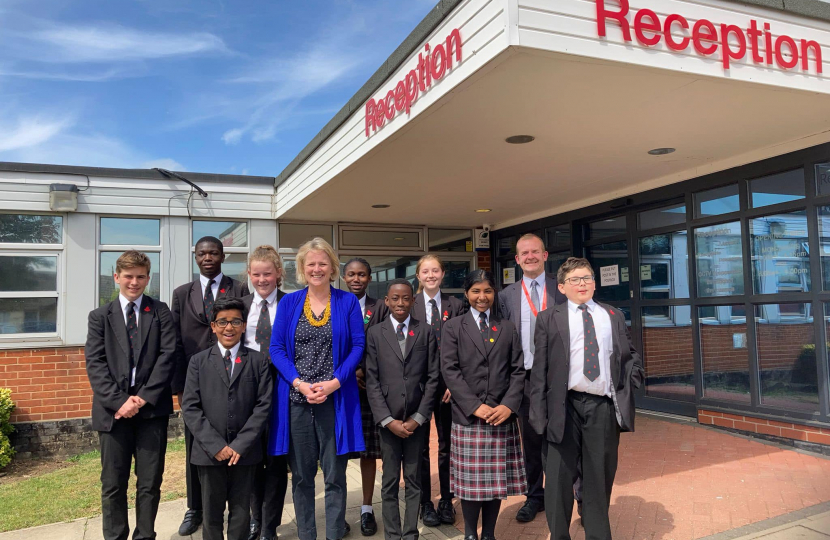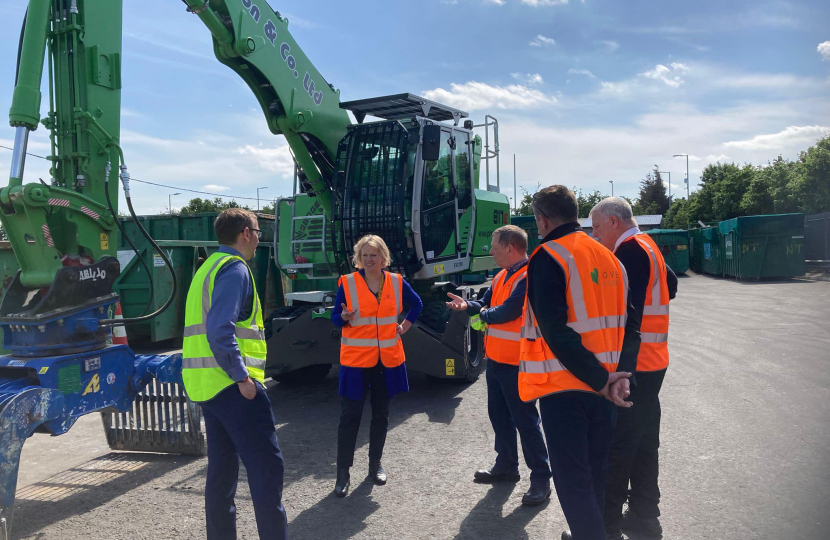Monday 9 May Over the weekend I travelled to Côte d'Ivoire on the West Coast of Africa. Last November, the UK welcomed leaders from all across the world to the COP26 conference in Glasgow. Leaders made important promises to reduce carbon emissions and limit climate change, these promises need to be turned into reality. During the year a series of mini COPs are held in order to keep focus on the challenges. This week's conference is on de-forestation and land degradation, delegates will come from many parts of the world including many from Africa, Latin America and the Caribbean.
I listen to African leaders share their plan to create a Great Green Wall - a forest that spans the Sahel area of the continent from East to West. The Sahara is moving southwards by up to 5 kilometres each year which is causing huge pressure on land for food production too. At the conference I speak about the UK's work to help prevent de-forestation and work with countries to mitigate the impacts of climate change. I also join a gender session, it is often women that feel the effect of changing weather and drought most acutely.
Tuesday 10 May I am up early to visit a forest on the edge of the city. Here a local environmentalist has worked to protect the forest, employing local people in an eco-tourism project. It is incredibly beautiful, full of birdsong. I help plant trees on the edges of the forest when the cliff edges are being washed into the sea.
Sadly, much of the country's forest has been destroyed in recent years but it is good that the government is now focused on protecting and enlarging forest areas. I join a conference session on sustainable agriculture, encouraging others to join a global effort to use more innovative measures to enhance food production in an environmentally friendly way. I also visit a pop-up covid vaccination centre to see the work the UK has been doing to support vaccine deployment. After many meetings with representatives from all across the world I head back to the UK on an overnight flight.
Wednesday and Thursday 11 and 12 May In the Foreign Office, I chair a conference working to enhance trade between the UK and Ghana and meet with leaders on girl's education projects across the world as well as meeting a number of ambassadors and ministers from different countries, both face to face and on line.
Friday 13 May In Chelmsford I have arranged to meet a local resident, David. He is a keen ornithologist. He has been monitoring the birds and animals nesting on and visiting the land south of the river near Manor Farm, Sandon for many years. There are plans to build new homes on part of this land and create a country park. David is concerned to make sure that the habitat of the many protected species is preserved and that the existing wildlife is not disturbed. We are joined by representatives from the developers, the landscape architect and members of the planning team from the city council. We walk through the site and David shows us where the nightingales nest, the field edges where barn owls hunt and the places where water voles are sometimes spotted. It is a helpful meeting and amendments to the plans are discussed which will help protect many special species.
I speak to the senior management of Royal Mail who offer the deepest apologies to the people of Chelmsford for the terrible problems that affected our post last year. They tell me about changes that have been introduced to management structures since.
At Boswell's school I meet with a group of year 7 and 8 students. They outline what they love about their school. Their faces are beaming as they talk about performing art, sport, maths challenges and chemistry practicals. They also make some very sensible suggestions of things they think they could do even better. What a great group of young people.
After a yummy cheese toastie at Coffee Squared in Beaulieu I head over to the Recycling Centre run by Essex County Council. I learn about what happens to the different items and materials that the public bring for disposal. With 12,000 visitors every month this is a huge task. The council officers tell me they hare recently decided to end their contract with an external company and bring the running of these sites back "in house". They have leased new machinery to help and it will save taxpayers money.
Producers of certain items like TVs, fridges and washing machines have to pay towards the deconstruction and recycling of these items. Under the new Environment Act which has recently been voted through parliament this "producer responsibility' will be extended to more products. Some items are salvaged for re-use, books are sold in bulk on line, metals are sorted as the more precious commodities like aluminium and copper wire will be sold for higher prices if they are not mixed in with others. Wood is sent to be made into chipboard. Tube lighting is stored very safely as this contains mercury which needs to be removed before the rest of the light can be recycled. Cooking oil is set away to be cleaned and will then be used a biofuel for the haulage market.
There is currently no organisation prepared to "off take" hard plastics, which is frustrating. However, the council are looking to see if one can be found.



